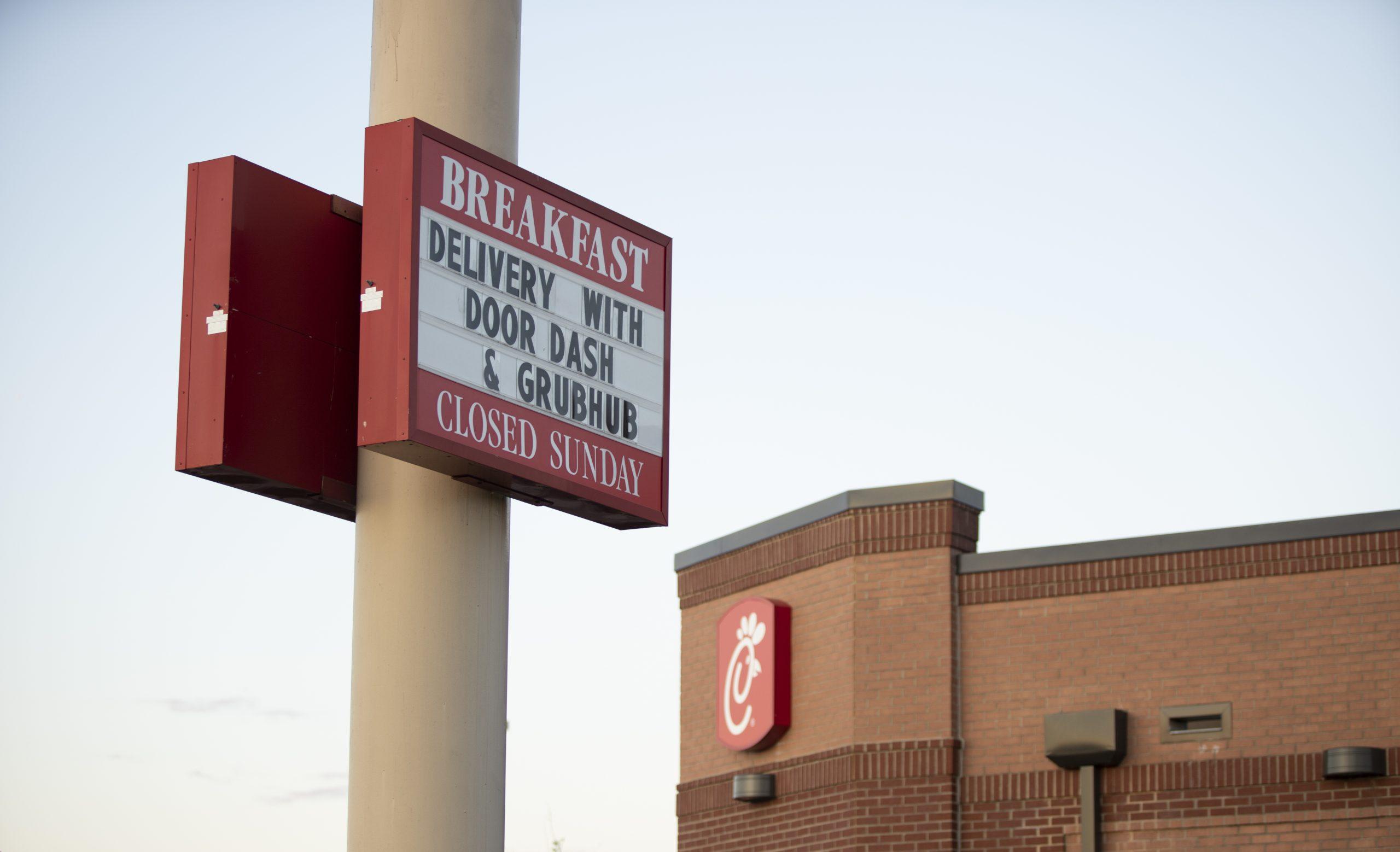Restaurants and bars in Pennsylvania have been ordered by Gov. Tom Wolf to shut down their dine-in services to slow the spread of the coronavirus. While carry-out, delivery and drive-thru food services can continue business, the governor also emphasized practicing social distancing.
goPuff, a Philadelphia-based delivery service that provides customers with convenience store items, has seen a rise in their customer demand.
“We’ve seen an increase in orders for cleaning products, household essentials and OTC meds as well as meat, pasta, canned items, water and baby products,” a goPuff company representative said.
John Magarity ’19 has been a goPuff driver in Philadelphia since January. On March 4, Magarity received an email from goPuff addressing the necessary precautionary measures employees needed to take due to the coronavirus outbreak; the email also included information about financial assistance available to drivers who need it.
According to a goPuff company representative, goPuff drivers and employees “in the field” are provided gloves, sanitizers and other protective equipment to wear during their shifts. Additionally, goPuff implemented a “non-contact delivery” option for customers.
“This has really helped to decrease direct contact between the drivers and the customers,” Magarity said. “I personally utilize both the sanitizer as well as the gloves. It does make you and the customer feel a bit more comfortable during the exchange if more direct contact is ever necessary for the transaction.”
While delivery services implement precautions, many workers feel these measures should have been in place sooner.
“This whole time we’ve had to sit in the warehouse while waiting for orders, oftentimes for upwards of 10-15 minutes” Magarity said. “Sometimes it gets packed with [drivers] waiting for orders.”
Magarity received a message from goPuff on April 13th, saying mandatory masks will be provided to all goPuff employees and drivers and announcing the implementation of social distancing.
“Now they’ll have the people that pack the orders rushing out to hand the bags to the drivers. Good move but wish it came sooner.”
Matthew Guastamacchia ’20, who delivers pizza in New Jersey, said in late March, the only briefing he got about coronavirus safety measures was locking the restaurant’s door after a customer picked up their food. Furthermore, the restaurant did not supply or enforce protective equipment for employees.
“Everyone who wears gloves did so on their own or was instructed by family, like me,” Guastamacchia said.
Since then, Guastamacchia said the owner of the pizza restaurant has provided gloves and masks to everyone, and customers are no longer allowed inside.
“He instructed us to not make the customers sign any receipts and leave all credit card deliveries at the door,” Guastamacchia said. “I feel 10 times better than since we spoke last.”
Instacart shoppers and Gig Workers Collective, a volunteer-based movement, announced an emergency nationwide walk-off and strike on March 27. Jordan Anderson is a member of the Gig Workers Collective and an Instacart shopper, someone who shops for and delivers groceries for Instacart customers.
“We are striking because we’re being asked to do this work without any health and safety protection and without adequate compensation for the risks we’re taking so that others can stay home and self-isolate,” Anderson said.
As independent contractors, gig workers are unable to use the same federal workplace protections available to employees. There is no formal organizing or collective bargaining for better pay. Anderson said people “strike by not working” in order to bring attention to the problems within the companies they are working for.
“These companies are asking us to keep working during a pandemic, but not equipping us to be able to do it safely, with hazard pay or with any viable way to ensure that if we do get sick, we can still maintain some financial stability,” Anderson said. “They’re calling us heroes, but not compensating us with anything close to commensurate wages for that kind of risk.”
Chris Smalls knows about taking risks. A former Amazon employee of five years, Smalls was fired after leading a walkout and protesting Amazon’s lack of precaution against the coronavirus at the company’s Staten Island, N.Y. fulfillment center on March 30.
Unlike delivery and gig workers from app-based services, employees like those who work for Amazon are obligated to receive certain benefits from their employer.
With a surge in orders due to the coronavirus, Amazon began offering raises, double overtime and quarantine pay, Smalls said. People came to work sick because they were earning good money.
“It’s either you come to work and risk your life or stay at home and get unpaid,” Smalls said. “The third option is you test positive and get quarantined pay. I don’t know what kind of package that is, but it’s not really one that I want to sign up for.”
According to the Pennsylvania Department of Labor & Industry, independent contractors (self-employed, gig workers, freelancers) who have lost income due to COVID-19 are not eligible for paid leave or workers compensation. Paid leave through the Families First Coronavirus Response Act is on a case-by-case basis.
Even with aid and funding packages, gig workers like Anderson say they are not accessible and unclear. According to Anderson, sick leave pay and the requirements needed to access it are impossible to live off and out of reach for most workers.
“I am one of millions of people trying to play Jenga with our health and finances,” Anderson said. “Move one wrong piece, and the whole thing comes crashing down around you. No one was ready for this. No one had a plan for a pandemic, and they should have.”



















































